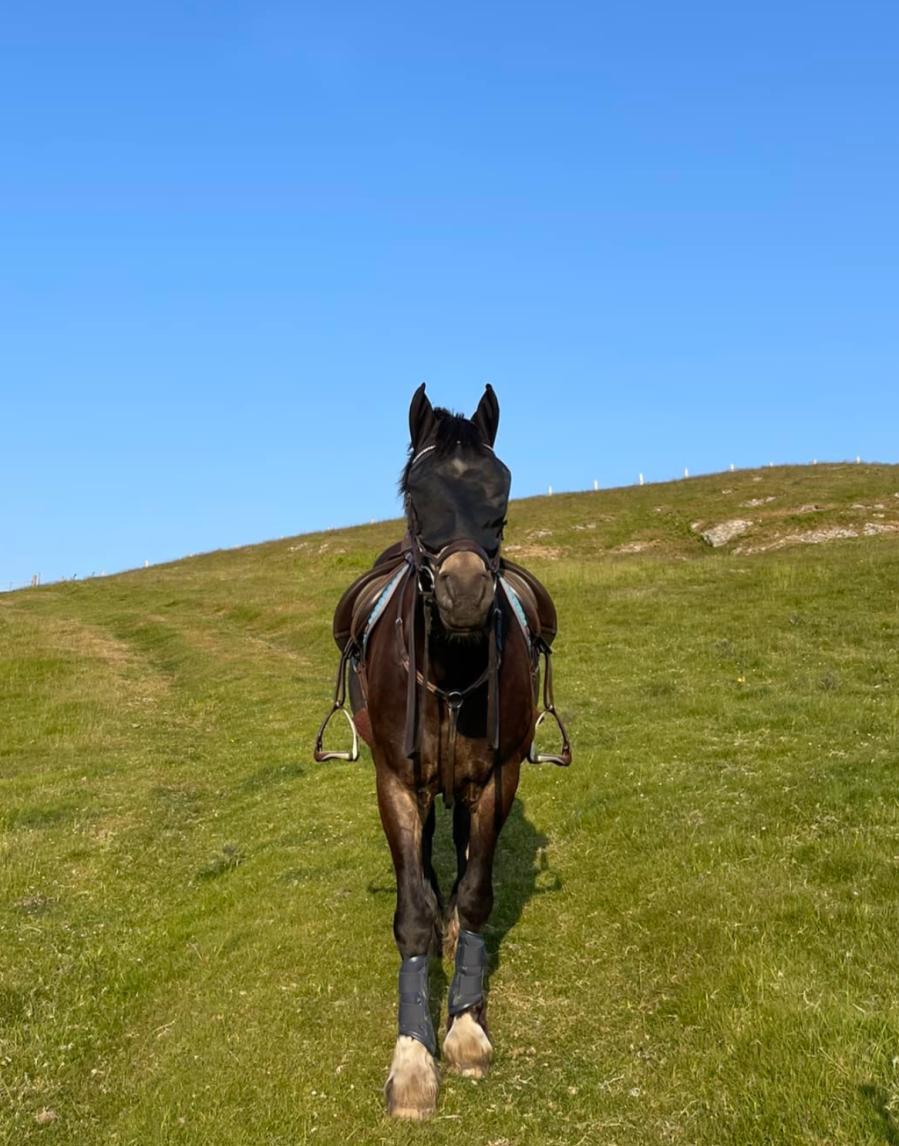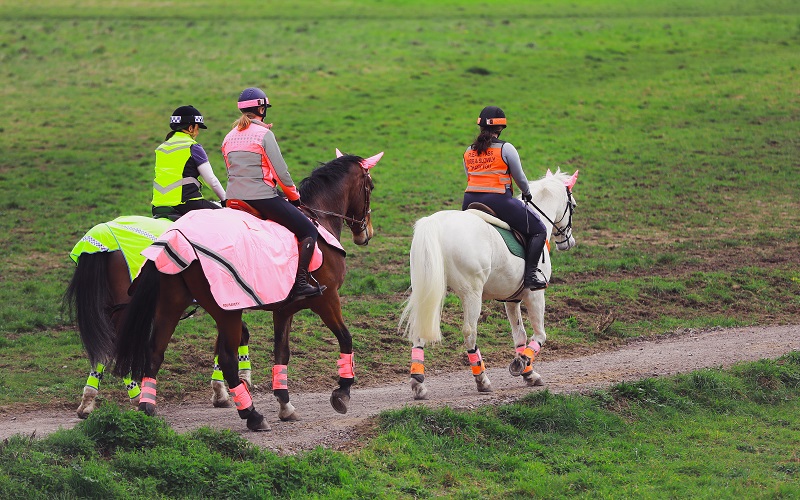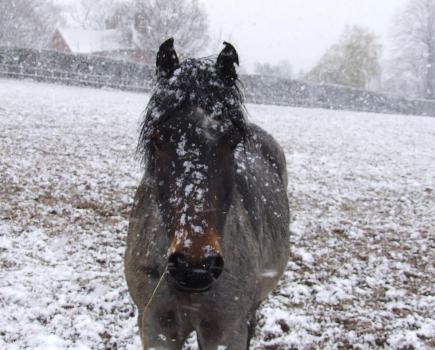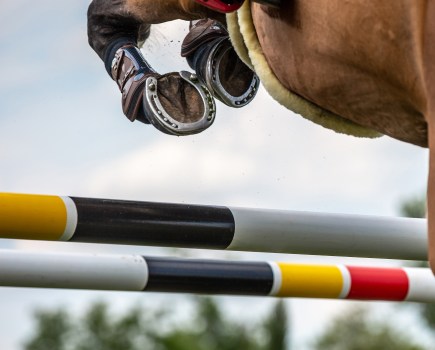
Sonic, owned by Eleanor Laws, wears a ride-on fly mask to help him cope with pesky horseflies whilst hacking
It’s that time of year again when our horses’ tails are swishing at the pesky — and painful — horseflies bothering them. Heading out for a ride isn’t always an escape, and can make what should be a pleasant ride into a tricky one if your horse is being plagued with bites, as was the case for one rider.
“I was wondering how everyone is coping out hacking with the flies?” asked Eleanor Laws in the Hack 1,000 Miles Facebook group.
“My boy Sonic wears a ride-on fly mask under his bridle but today he was so agitated by the flies he would just jog and try to trot or canter off to avoid them.
“He was very unhappy despite being smothered in fly cream and spray. It’s got to the point where I think I will just have to ride at 5am before work, unless anyone has any ingenious suggestions that work as I’m out of ideas.”
1. Ride-on fly rugs
If fly spray isn’t cutting it – perhaps it’s not strong enough or your horse sweats it off – then covering them with a fly rug might be worth a shot. Some have belly flaps, which will be useful if your horse is particularly susceptible to bites and reactions on their stomach.
“I use a ride-on fly rug during horsefly season,” said Amanda Davies. “My mare doesn’t overheat in it and it’s so much better than any fly spray.”
“Our ride-on fly rug is a game changer,” said Alison Bowen. “I’ve tried two different ones. I’ve found the bright yellow one deters the horseflies the most. It’s not got a belly flap, but it seems to keep them off better than the blue and white one with the belly flap. The only drawback is that the flies bite the rider instead!”
If you’re concerned about your horse overheating, many fly rugs are made with a breathable mesh, so keep an eye out for this when making a purchase. Or, as other riders have done, there are other things you can try.
“My boy hates flies also,” said Anne McEwen. “He wears a ride-on fly rug. He gets a bit sweaty so we have a mesh one and he’s clipped.”
“We use mesh high vis quarter sheets,” said Claire Brooks. “They double up as fly sheets.”
2. Ride-on fly masks
Some horses may not be fussed with flies on their body, but can become frustrated when they are being continuously bothered around their eyes and nose. One option is a mask – ideally for ridden work, select one that has been designed to be worn underneath a bridle.
“My horse Romeo hates horseflies; he has a ride-on fly mask and ride-on rug,” said Amanda Barker.
3. Bridle tags
If you’re not keen on covering up, then selecting something to deter flies might be a good plan. Fly sprays or creams are a good place to start, but might need topping up mid-ride if your horse gets a bit sweaty.
“Citronella bridle tags seem to work,” recommends Lizzy Dixon.
4. Get an early start
If your horse is really struggling, the best and kindest thing to do is avoid peak horsefly times. Some riders have found heading out earlier in the day to be beneficial.
“Nothing has worked for me and Tricky, so we go at 6am before the flies wake up,” said Joanna Tinsley.
5. Find an effective repellent
Applying a fly repellent that works for you and your horse can help make all the difference. Our reviews team recently shared their feedback on some of the fly sprays and gels currently on the market. Take a look at the reviews here.
Well-known and effective ingredients used in fly sprays and repellents for horses include:
- Deet. This is a popular choice and is considered to be one of the best fly repellents (and sprays) for horses. Higher percentages will be more effective and last longer.
- Neem. An all-purpose Ayurvedic remedy, neem oil us derived from the seeds of the neem fruit. It provides a non-toxic, environmentally friendly fly repellent that’s also effective for relieving itchy skin.
- PMD. A natural chemical from lemon eucalyptus leaves means PMD smells lovely. Go for a product with high concentration for it to be a long-lasting repellent.
- Permethrin (and cypermethrin) is an example of a ‘pyrethroid’ insecticide. This term refers to a class of synthetic insecticides with a chemical structure tear us similar to natural pyrethrum. Pyrethrum is a natural insecticide produced by the flowers of certain species of chrysanthemum.








